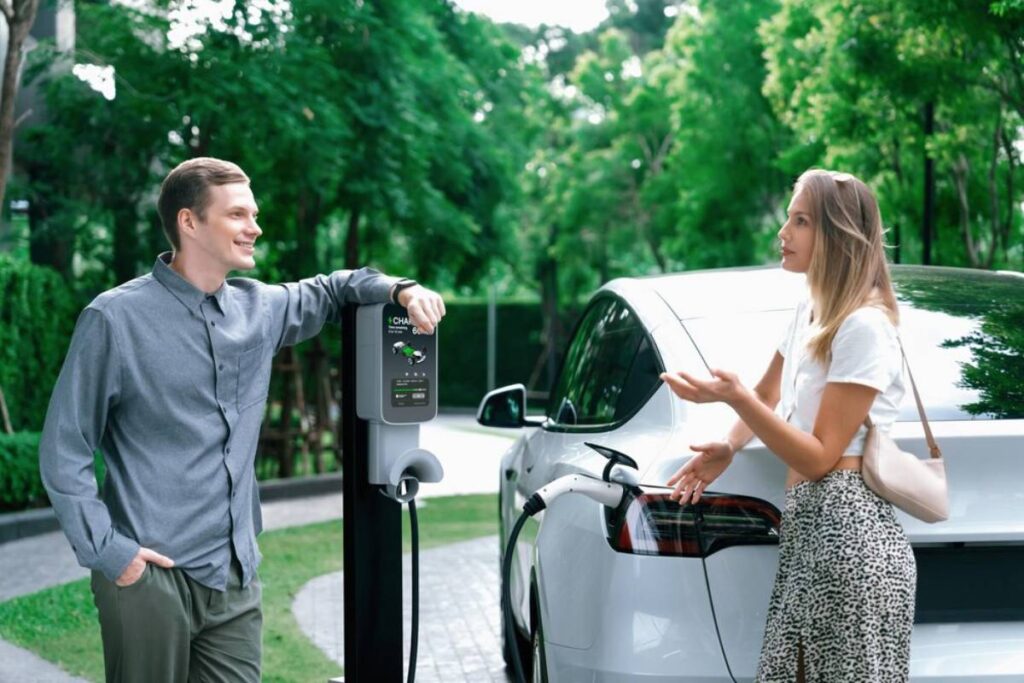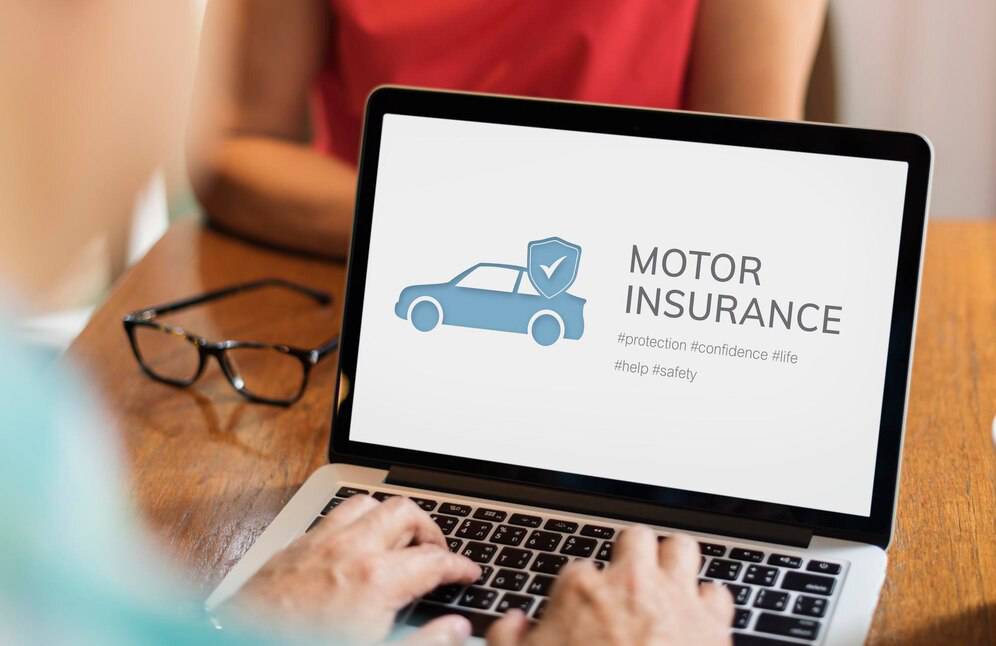The Automobiles & Vehicles Blog

Is It Better to Lease or Buy an Electric Car?
Switching to an electric vehicle (EV) is an exciting step. Whether you’re in it for the environmental perks, the lower running costs, or simply the thrill of futuristic driving, one big question tends to crop up early: should you lease or buy your EV?
The answer isn’t always straightforward — especially with electric car prices, battery technology, and government incentives all evolving rapidly. What makes perfect sense for one driver might not suit another’s budget, lifestyle, or long-term goals.
In this guide, we’ll break down the pros and cons of EV leasing vs buying, explore how electric car financing compares to traditional options, and help you make a decision that suits your wallet as well as your driving habits. Whether you’re a city commuter, a road tripper, or a tech enthusiast eyeing the latest Tesla or Kia EV6, there’s a financing path that’s right for you.
The Basics: What’s the Difference Between Leasing and Buying an EV?
Buying
When you buy a car — whether outright or via a loan — you own it. That means:
- You can drive it as much as you like
- You’re responsible for depreciation
- You keep it for as long as you want
- You can sell or trade it in when you’re ready
Leasing
Leasing is like long-term renting. You pay a monthly fee to use the vehicle for a fixed period (typically 2–4 years), with the option to return it, upgrade, or sometimes buy it at the end.
- Lower upfront costs
- Maintenance often included
- Mileage limits apply
- No resale responsibility
Leasing an Electric Car: Pros and Cons
Pros
1. Lower Monthly Payments: Because you’re not paying for ownership, leasing costs less per month than loan repayments.
2. Latest Tech Every Few Years: EV tech is advancing fast. Leasing lets you upgrade every 2–3 years, staying current with battery improvements, range increases, and software.
3. Reduced Repair Hassles: Most leases include warranty cover and optional maintenance packages, minimising unexpected costs.
4. Great for Businesses: EV leasing offers favourable company car tax perks. Drivers benefit from low Benefit-in-Kind (BiK) rates, especially for zero-emission cars.
Cons
1. You Don’t Own the Car: At the end of the lease, you hand it back — no asset, no equity.
2. Mileage Restrictions: Typical limits range from 8,000 to 15,000 miles per year. Go over, and you’ll face extra charges.
3. Customisation Restrictions: Want to tint windows or change the wheels? Not so fast — lease agreements don’t allow major mods.
4. Early Termination Fees: Getting out early can be costly. Think carefully before committing to a long-term contract.
Buying an Electric Car: Pros and Cons
Pros
1. It’s Yours: You can drive it however you like, keep it as long as you want, and sell it on when you’re ready.
2. No Mileage Limits: If you’re a frequent traveller or commuter, unrestricted miles make ownership far more flexible.
3. Long-Term Savings: Once you’ve paid off the car, you’re driving cost-free — aside from insurance and maintenance.
4. Government Grants & Incentives: Many schemes, like the Plug-in Car Grant (UK) or Clean Vehicle Rebate Program (US), apply only to buyers, not leaseholders.
Cons
1. Higher Upfront Costs: Whether you’re buying outright or financing, deposits and repayments are usually higher.
2. Depreciation Risk: EVs tend to depreciate quickly — especially models with small batteries or older tech.
3. Outdated Tech Over Time: Buying means you might be stuck with a vehicle that feels outdated in just a few years — especially as EV range and charging speed keep improving.
4. Battery Degradation: Although EV batteries are more durable than most expect, owning long-term means you could see a 10–20% range drop over several years.
Real-World Example: Lease vs Buy Comparison
Let’s break it down with a typical case study.
Case: Nissan Leaf 40kWh

Price: £28,000 (new)
Finance Option: £3,000 deposit + £350/month for 4 years
Lease Option: £1,500 upfront + £250/month for 3 years
Insurance, charging, servicing: Identical for both
Over 3 Years:
| Criteria | Lease | Buy (with loan) |
|---|---|---|
| Total Spent | ~£10,500 | ~£16,800 |
| Ownership | No | Yes |
| Mileage Limit | 10,000/year | None |
| Resale Value | N/A | ~£12,000–14,000 (est) |
| Flexibility | Upgrade at lease-end | Keep or sell |
Summary: Lease wins on cost and flexibility; buying builds equity and suits high-mileage users.
Who Should Lease an EV?
- Tech-lovers who always want the latest model
- Urban drivers with predictable, low mileage
- Businesses or salary sacrifice schemes looking for tax advantages
- Drivers uncertain about long-term EV commitment
Who Should Buy an EV?
- High-mileage drivers
- Long-term owners planning to keep the car for 6–10 years
- Drivers with solar panels who want to maximise ROI
- People eligible for EV grants or green loans
Tips for Deciding: Lease or Buy?
1. Calculate Your Annual Mileage
If you regularly exceed 15,000 miles, leasing may be expensive due to excess mileage penalties.
2. Think About How Long You’ll Keep It
Lease for short-term flexibility. Buy if you’re in it for the long haul.
3. Consider the Tech Curve
If you’re worried about fast-moving improvements, leasing protects you from rapid depreciation.
4. Look at Total Cost of Ownership (TCO)

Include insurance, maintenance, tax, charging, and resale value — not just monthly payments.
5. Use Lease vs Buy Calculators
Try tools like LeaseLoco, MoneySavingExpert, or manufacturer finance portals for side-by-side comparisons.
EV Financing Options to Consider
Personal Contract Purchase (PCP)
- Pay monthly with an option to buy or return at the end
- Popular with EVs thanks to government grants and low APRs
Hire Purchase (HP)
- Higher monthly payments, but you own it outright at the end
- Good if you plan to keep the car long-term
Personal Lease (PCH)
- Just rent the car — no option to buy
- Lowest monthly cost, best for those who always want new tech
Salary Sacrifice Schemes
- Available through some UK employers
- EVs leased pre-tax, with big savings and insurance often included
Drive What Suits You Best
When it comes to EV lease vs buy decisions, there’s no one-size-fits-all answer — and that’s a good thing. Leasing offers lower costs and maximum flexibility, ideal for those who want to ride the tech wave. Buying, on the other hand, is better for those who want full control, no mileage restrictions, and the benefits of ownership.
Ultimately, it’s about choosing the path that aligns with your lifestyle, budget, and values. Whether you lease or buy, switching to electric already puts you ahead in terms of sustainability, performance, and future readiness.









